Statement Before the National Recording Preservation Board
SUMMARY: David Freedman's testimony to the Library of Congress about the need to preserve, digitize and apply best archival practices to WWOZ's live recordings from 1993 to 2007
BY: David Freedman, General Manager, WWOZ-FM, New Orleans, LA
New York City — December 19, 2006
WWOZ is a volunteer-operated, listener-supported not-for-profit community radio station serving the City of New Orleans, a city whose heritage of jazz, blues and gospel innovations has transformed America’s vernacular culture, and through America, the world. In many ways, New Orleans and its surrounding region are the cultural wetlands of our nation. And WWOZ’s mission is to serve and promote this enormously rich roots culture.
Despite our extremely limited resources, WWOZ has embarked on an ambitious program of broadcasting and recording local, live music performances from as many venues as possible — music festivals, night clubs, street events and concerts. The recordings have high archival and esthetic interest. Some of them have been placed in the first round of the Library of Congress’s National Recording Registry. Many of the artists whom we recorded are no longer living. Since 1993, for example, we have recorded 28 hours of live performances from the New Orleans Jazz & Heritage Festival.
To date, WWOZ has amassed more than 7,000 hours of live-performance recordings using what we considered at the time to be the most advanced, affordable, technology. Along the way, our recording formats have evolved through six formats: analog tape reels, two-channel DAT recordings, High-8 tape, multi-track DA-88’s and finally, now, dot-wave files recorded directly to hard drive. We have just purchased a 48-track, Direct Streaming Digital recorder which we will put into service by Spring, 2007.
Our archives were originally housed in a high-security, climate-controlled digital data storage facility in the suburbs of New Orleans. Due to access issues we began to temporarily store our recordings in a local and less secure environment. Over time, half of our collection ended up being housed in this “temporary” storage area. And it was these recordings which literally came within an inch of being washed away by the Great Army Corps of Engineers Flood of 2005.
We also have a unique collection of 25,000 CDs and thousands of LPs which were placed in the station’s operating broadcast studio for daily use. The winds from Hurricane Katrina tore off a 30-foot square patch of roof tiles directly over these recordings so that only a thin sheet of roof paper protected them from the rain.
In a stunned fugue-state, three days after the hurricane, and 500 miles away in an Arkansas motel room, I began to realize that WWOZ might lose half or even all of the work of the past 13 years. Through dramatic efforts, which are more fully developed in my blogs on the WWOZ website – www.wwoz.org, we were able to safely retrieve all of our recorded material.
It was at this point that we began to address the obvious. Why bother to make all these recordings if they weren’t going to be available in the future? At first, we thought in terms of disaster scenarios. But once our attention was concentrated on the question, we soon began to realize that the real threat to our collection was not just haphazard storage practices, but the fact that the media formats themselves were obsoleting at such a fast rate, that without immediate intervention, we might just as well have lost the masters to the Flood. And once we began to understand what it would take in terms of funding and operational resources to apply best archival practices to this unique and important work, we were as stunned by the magnitude of this problem as we had been by the magnitude of the losses we had imagined in September, 2005.
Moving as quickly as we could, we applied for and received a Grammy Foundation Gulf Coast Music Preservation Grant of $40,000. But it was not until the Library of Congress informed us of the National Audio Visual Conservation Center’s interest in recovering and preserving our collection that we began to hope that these recordings would not be lost.
Our story, however, is only the tip of the flotsam and jetsam which emerged post-Katrina. There are hundreds of smaller, important collections in New Orleans, made by the musicians themselves. Traditional jazz clarinetist Dr. Michael White and virtuoso pianist Henry Butler, to cite two examples, lost their entire collection of master recordings of their life’s work. Many other musicians still have recordings in various states of deterioration and obsolete formats which are at risk of being lost without proper archival intervention. We are currently working with the French government in the hopes that it may intervene in saving these precious master tapes.
There are also a number of irreplaceable private collections of commercially released recordings in New Orleans – locally recorded and issued on a variety of formats – 78, 45, LP, CD and tape cassette. While these recordings may be located individually elsewhere, as a collection, assembled and catalogued by experts steeped in the local music culture, it is highly unlikely that such an ensemble could ever be reconstituted once lost to a weather-event or to the vagaries of time.
It is for this reason that I am very grateful to the Library of Congress and to this Board for its work and its interest, both in our particular story, and in the larger issues which affect the national memory of some of our most important cultural expressions. Katrina was a wake-up call in many different ways. We at WWOZ intend to heed that call, and salute those segments of government which stand ready to help us in the daunting demands imposed upon us by our sense of responsibility to our proud heritage and to a future enriched through cultural continuity.



















